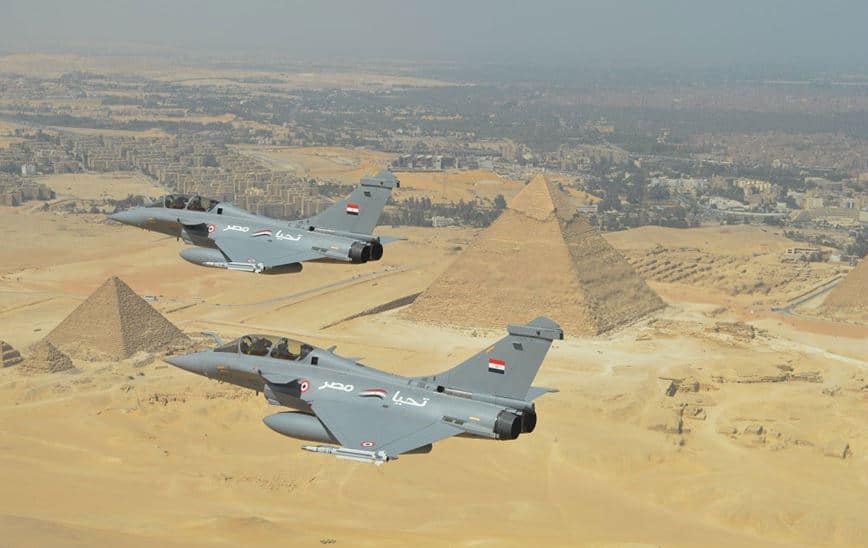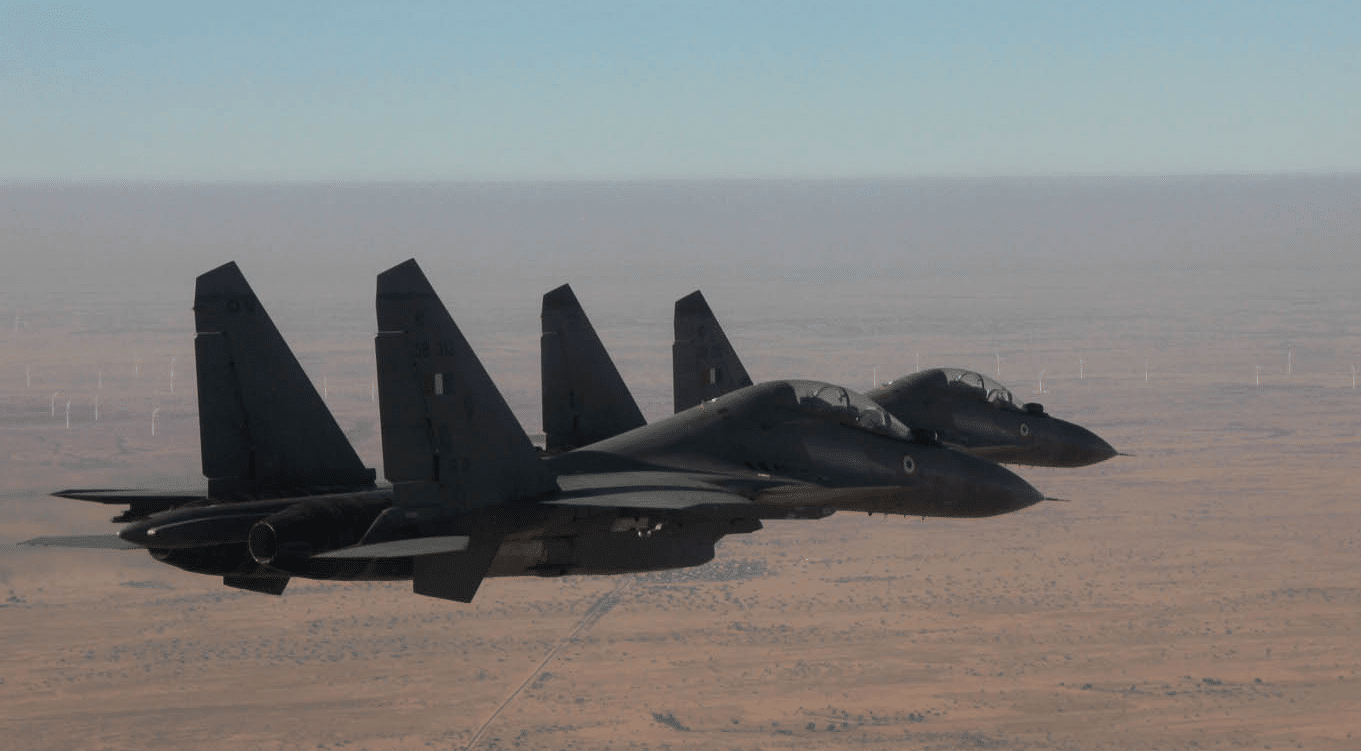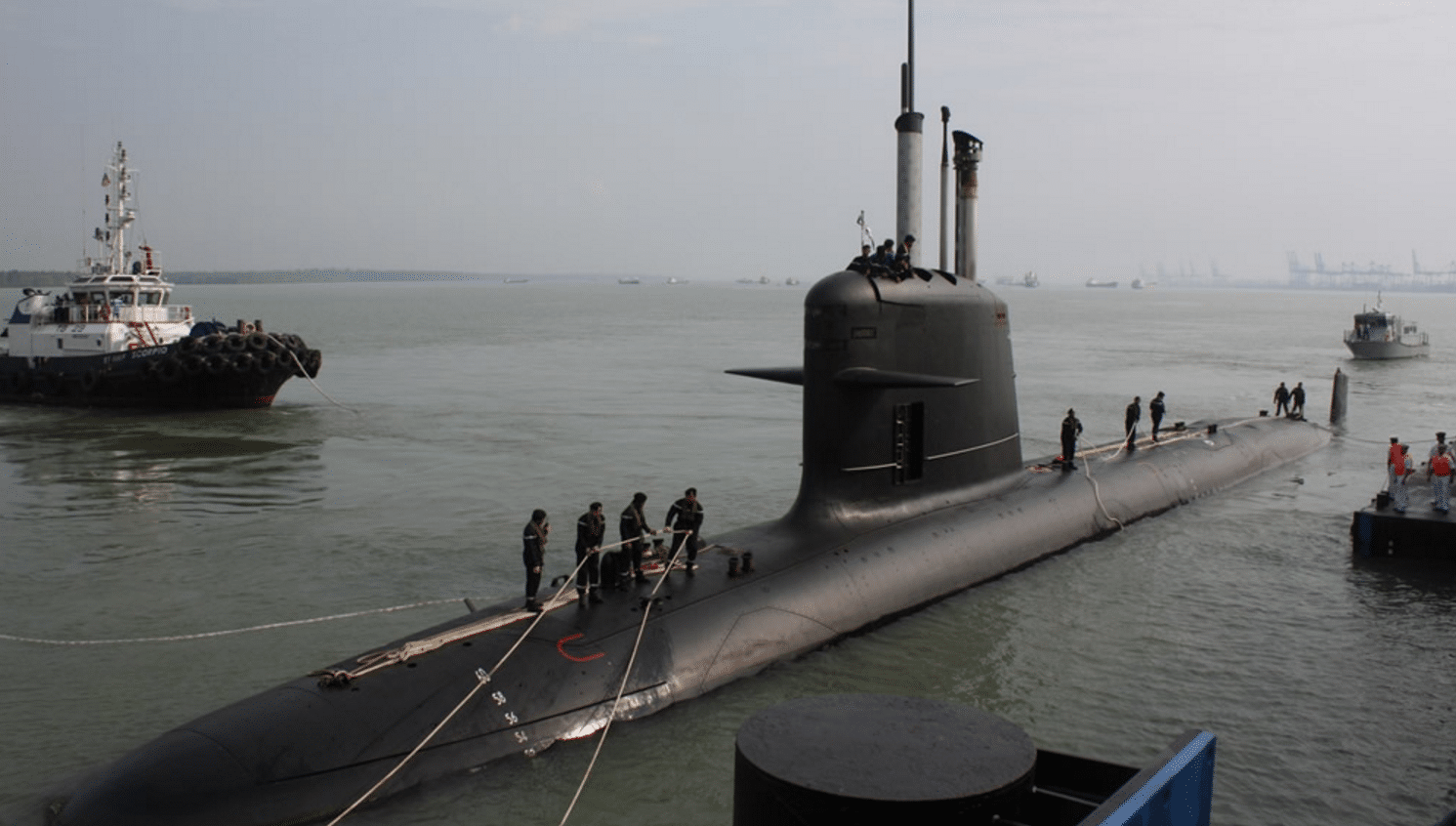2827Views 1Comment

Egypt reportedly mulling optional Rafale and Gowind 2500 purchases
Egypt is reportedly interested in exercising its optional clauses for 12 additional Dassault Rafale multi-role fighters and two DCNS Gowind 2500 corvettes from France.
The French language newspaper La Tribune reports that Cairo is seeking additional credit to finance the sales, though it is unclear if France will be as forthcoming on providing it as it had been in 2015, when it sold the Rafale, Gowind 2500, a FREMM frigate and Mistral landing helicopter docks (LHD) to Egypt. Egyptian President Abdul Fattah el-Sissi is expected to raise the issue on his official visit to Egypt this week.
Egypt currently has 24 Rafale fighters and four Gowind 2500 corvettes on order.
The Egyptian Air Force received its latest Rafale batch in July, totaling 11 aircraft in service. The Egyptian Navy’s Alexandria base received the service’s first Gowind 2500 corvette – the Elfateh – this month. The FREMM frigate and two Mistral LHDs were delivered in 2016.
Besides seeing Egypt exercise options from the 2015 contract, the French defence – specifically Airbus – is interested in selling to Cairo A400M air-lifters and 36 NH90 helicopters, of which 24 would be land-use Tactical Troop Transports (TTH) and 12 NATO Frigate Helicopter (NFH) for maritime operations.
Notes & Comments:
These prospective sales, especially with the optional fighters and corvettes in place, would amount to a new set of multi-billion-dollar deals. In 2015, the French industry had extended loans covering 60% of the cumulative value of arms sales to Egypt at the time (with the remaining 40% paid upfront by Egypt from its national funds). These loans were underwritten by the French government.
It is not clear if France will extend fresh loans for new purchases. Local and international media have also criticized the French government for not substantively engaging Egypt on its human rights issues, but the French government generally abstains from publicly chiding other states on such matters.
Moreover, France’s sales in Egypt have largely been focused on the transfer of conventional arms meant for deterring other states. While the Rafale could be deployed for counterinsurgency (COIN) operations, the Egyptian Air Force has ample numbers of F-16s and, in time, MiG-29M/M2 for those roles. Egypt also has a burgeoning attack helicopter fleet in the form of Boeing AH-64Ds and Kamov Ka-52s.
It does not seem that Paris is exercising foreign relations leverage with Cairo over these sales, which would suggest that the aim of these defence contracts is primarily economic. In fact, Egypt was the first overseas customer of the Rafale, which then bridged sales to Qatar and India.
The Airbus Helicopters NH90 and Airbus Defence & Space (DS) A400M have yet to gain traction outside of NATO and U.S. defence partners (e.g. New Zealand). The Middle East is a perennially lucrative market for defence vendors. Thus, it is plausible that the French industry views Egypt as both a large long-term market and as a gateway to other regional powers, especially in the Gulf Cooperation Council (GCC). This may sway Paris to continue supporting the industry by securing large loans to Cairo.



1 Comment
by TZK
The Egyptians have turned to France and Russia as their preferred arms suppliers purchasing Rafale, the two Mistral Class carriers originally built for Russia and MIG 35’s among other hardware. I think the Obama administration sought to distance itself from the El-Sisi govt over the removal of democratically elected Muslim Brotherhood. Where are they going to use those carriers?